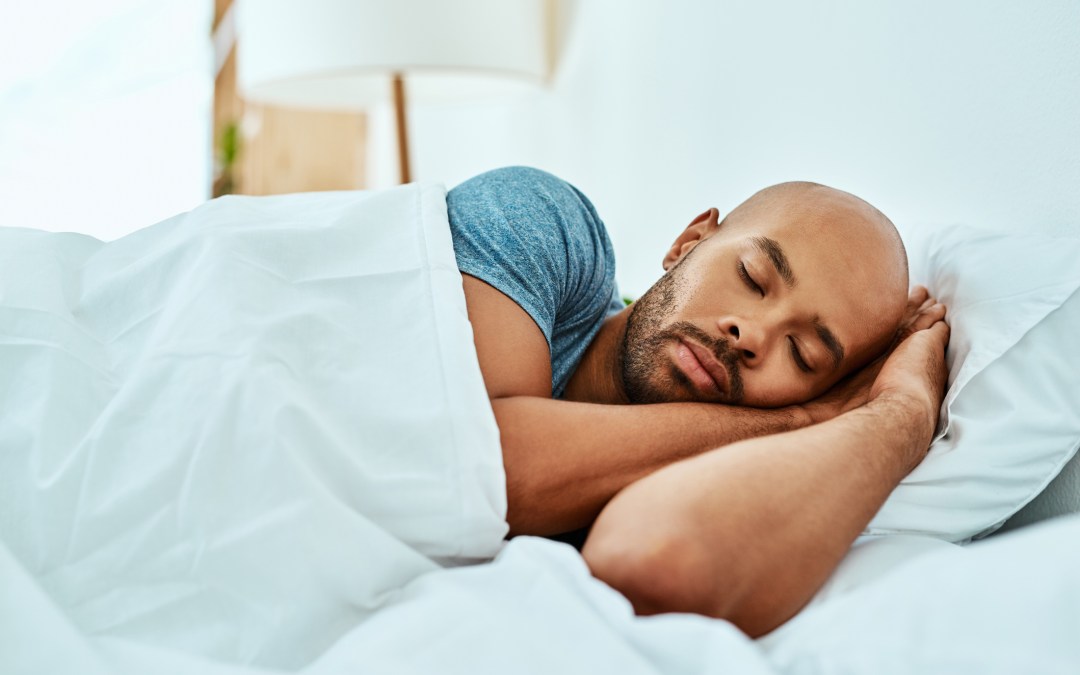Are you feeling stressed, anxious, and overextended? You’re certainly not alone these days. And if things are keeping you up at night, it only compounds the problem. Sleep can be quite challenging at this time—but it’s crucial for your physical and mental wellbeing.
As we close out 2020 and look ahead toward the new year, why get a head start on a resolution to practice self-care, starting with making sure you get quality sleep?
Is your sleep hygiene optimized?
Sleep hygiene is made up of good (or bad) habits that surround your sleep. How can you practice better sleep hygiene? Set a sleep schedule so that you go to bed and wake up at the same time every day. Declare your bedroom an electronics-free zone. Working on your laptop or checking email on your phone is not conducive to a good sleeping environment. When it’s time for bed, leave your devices plugged in elsewhere. Regular exercise, a balanced diet, and moderation of alcohol and caffeine are also components of healthy sleep.
Can a lack of sleep impact your mental health?
Quality sleep and mental health go hand in hand. Studies suggest a good night’s sleep helps foster both mental and emotional resilience. Even during the busy holiday season, take time for yourself, and nurture your mind and body. There are several ways to prepare for sound slumber, including relaxing before bedtime by practicing meditation and deep breathing, playing soothing music, reading a book, or taking a warm bath.
Can the cold temperature wreak havoc on your slumber?
Wondering why you feel sleepier in the winter months? Our circadian rhythms can be thrown off due to a lack of natural light and a decrease of melatonin, both of which are responsible for alerting our bodies when it’s time to sleep.
Additionally, as the weather gets cooler, it’s tempting to put on a set of flannel sheets, add an extra blanket, climb under the covers in heavy pajamas, and crank up the heat. However, when our bodies are overheated due to inside or outside temps, our sleep stages are affected, including the REM stage, which is crucial to resetting your body and brain. A cool bedroom temperature is more conducive to healthy sleep.
Does your lifestyle affect your sleep?
Lifestyle choices can negatively impact your sleep quality and quantity, even with a stellar sleep hygiene plan in place. Going to bed right after a heavy, late-night meal can leave your body working overtime to digest food properly, leading to an unpleasant case of heartburn. That evening glass of caffeinated soda, cup of coffee, or tea acts as a stimulant to your system, keeping you awake. Other substances to avoid are nicotine and alcohol, which also cause sleep disruption. While physical activity is an essential part of your life, steer clear of any high-intensity exercise less than an hour before you turn in for the night, as that can affect getting to sleep.
Still sleepy? The cause may be a sleep disorder.
Approximately 70 million Americans suffer from sleep disorders, including sleep apnea, insomnia, restless leg syndrome, and narcolepsy. If you’ve instilled healthy sleep practices and are still struggling to fall asleep, stay asleep, or find yourself overly sleepy during waking hours, speak with your physician. Keeping a sleep diary of how often you are waking at night or falling asleep during the day can help get to the root of the problem. Your doctor may recommend a sleep study or other tests for further investigation.

